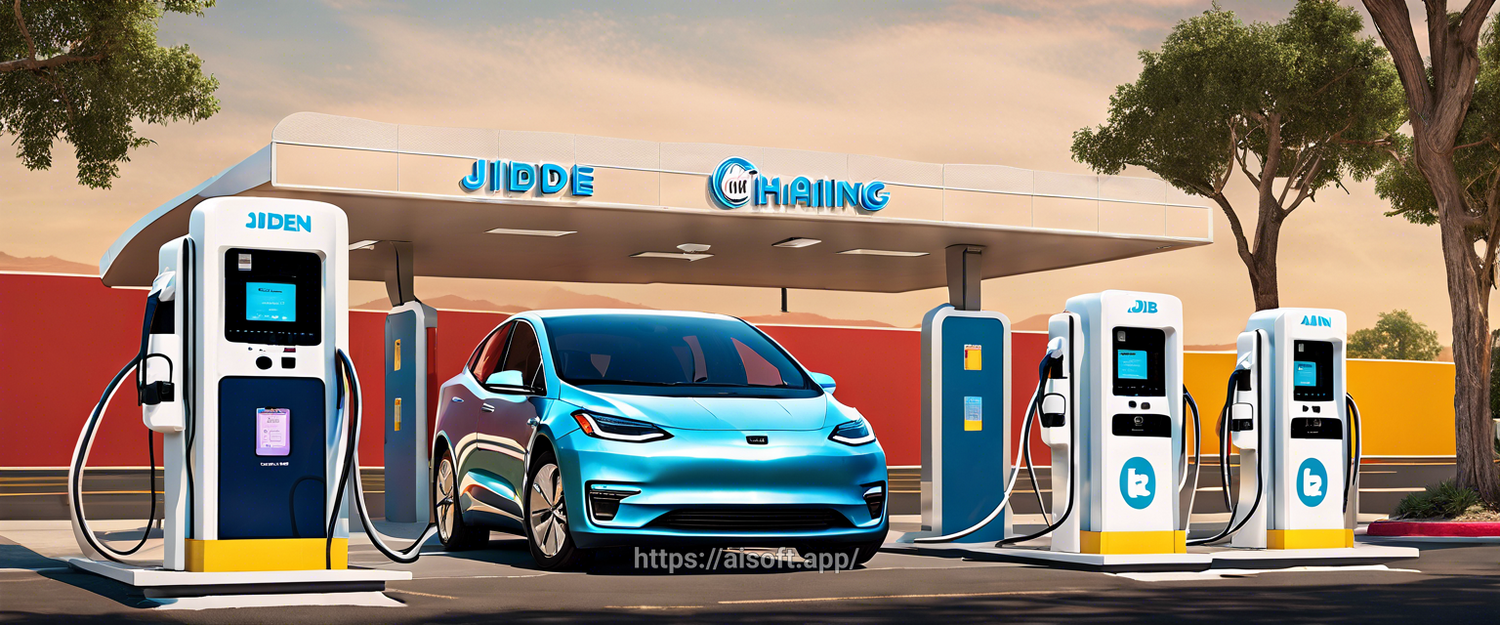The Biden Administration's Push for Electric Vehicle Charging Stations
The Biden administration has announced significant progress in expanding the network of electric vehicle (EV) charging stations across the United States, revealing that the number of publicly available charging ports has more than doubled since 2021. This article delves into the latest developments regarding EV infrastructure and the efforts being made to spur electric vehicle adoption.
Current State of EV Charging Infrastructure
According to the administration, there are now over 192,000 publicly available charging ports in the US, marking a substantial increase from approximately 100,000 ports when President Joe Biden took office in January 2021. This expansion reflects the government's commitment to electric vehicle adoption, with approximately 1,000 new public chargers being added weekly.
Challenges Facing EV Adoption
Despite the rapid installation of charging stations, charging infrastructure often poses challenges for EV owners. Surveys indicate that infrequent charging and broken equipment are frequently cited as significant pain points for users. However, the charging experience has improved recently due to the increasing availability of new chargers.
Long-Term Goals for EV Charging
During his campaign, President Biden pledged to build 500,000 charging stations by 2030 as part of an initiative to boost EV sales. This includes a funding provision of $7.5 billion outlined in the Bipartisan Infrastructure Bill. Nevertheless, progress has been slower than anticipated; reports indicate that only seven charging stations with 38 ports were operational under the National Electric Vehicle Infrastructure (NEVI) program.
New Funding Initiatives for Charging Installation
This week, the Biden administration announced an additional $521 million investment to help 30 states expand their EV charging networks. This funding round is designed to support state programs that previously missed out on funding and allows them to reapply for additional resources.
The Electrification Coalition highlighted that many funded projects prioritize providing charging access to rural areas, disadvantaged communities, and multi-unit dwellings, as well as efforts to support medium- and heavy-duty vehicles. Collectively, this initiative is expected to create more than 9,200 new charging ports across the country.
Examples of Funding Allocations
- California: $102 million allocated to the California Department of Transportation for EV charging and hydrogen fueling along 2,500 miles of highways.
- Maryland: The Maryland Clean Energy Center receiving $33 million to support charging in rural, urban, and disadvantaged communities.
- Florida: The Seminole Tribe of Florida awarded $933,600 to build seven charging stations across their reservation.
The Future of Electric Vehicles
As automakers face challenges with slower-than-expected EV sales growth, including the cancellation of certain models and extended timelines for production, the government’s funding for charging stations represents a critical step toward fostering a more robust electric vehicle market. While EV sales continue to grow, the need for affordable models and improved charging infrastructure remains essential to ensure sustained momentum in the transition to electric vehicles.
In conclusion, the Biden administration’s efforts to double the number of EV charging stations show a strong commitment to enhancing the electric vehicle ecosystem in the United States. Further investment and focus on accessibility will be vital in addressing existing challenges and paving the way for a greener future.



اترك تعليقًا
تخضع جميع التعليقات للإشراف قبل نشرها.
This site is protected by hCaptcha and the hCaptcha Privacy Policy and Terms of Service apply.